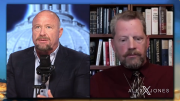
Podcast: Play in new window | Download ()
Subscribe: Android | RSS | More
The victims of the March mass shootings in Christchurch, New Zealand, had hardly been buried when gun-grabbing politicians rammed through stricter firearms laws. Now they’re at it again, aiming to “enshrine in law that owning a firearm is a privilege and comes with an obligation to demonstrate a high level of safety and responsibility,” in the words of Prime Minister Jacinda Ardern.
After the shootings, which took 51 lives at two mosques, Ardern announced a nationwide ban on semiautomatic and “assault” weapons and a mandatory “buyback” of said weapons, provisions that were hastily codified by Parliament. (As expected in a country where firearms ownership is widespread and, unfortunately, taken for granted, the buyback program has thus far been a bust.)
According to the New Zealand Herald, the newly proposed law, which will have to undergo the normal parliamentary process, calls for stricter licensing requirements for both gun dealers and gun owners, more frequent license renewals, a national gun registry, a ban on foreigners purchasing guns in the country, new licensing requirements for shooting clubs and ranges, restrictions on gun advertising, and “new offenses and higher penalties for breaking the rules.”
“Under the current law,” said Police Minister Stuart Nash, “we do not know exactly how many guns are in circulation, who owns them, who is selling them, who is buying them, or how securely they are stored against the risk of theft or misuse.” From the government’s perspective, that’s a bad thing, which is why the Police Association has been lobbying for a national registry for years.
In announcing the new law, Ardern said while she recognizes that New Zealanders in rural areas often need guns for hunting or protecting their herds and flocks, “I don’t think that extends to this view that every New Zealand citizen has the need and right to generally arm itself.”
Nash concurred, declaring that owning a gun should be a “privilege, not a right.”
Perhaps the most ominous provision of the new law is one that, reported the Herald, “would allow police to revoke firearms licenses or demand safer storage if there were reasons for police intervention, such as a person promoting violence or extremism, being a threat to national security, or committing violent crimes.” The Associated Press added that people with “serious mental health issues” could also find their licenses revoked.
According to the AP, “Nash said the legislation would allow police to monitor people’s social media accounts to determine whether they were fit to own weapons.”
“What we do know is that the Christchurch terrorist was engaged on some sites which were promoting some pretty horrific material,” Nash said. “So that’s one thing police will have the ability to assess when they determine if someone is fit and proper to have a firearms license.”
Should the police adopt the definition of “extremism” held by social-media companies such as Facebook, Christians, political conservatives, and others out of favor with the progressive elites could find themselves disarmed, while groups like Antifa would be allowed to wreak havoc unimpeded — as happens in some Left-dominated American cities now. Critics of the cops or the New Zealand government might have to think twice before voicing their opinions online lest they be branded “threat[s] to national security” and have their guns taken away. And it’s easy to label any politically disfavored opinion “mental illness,” as subjects of many a totalitarian regime can attest.
Arden claimed that the new laws would have prevented accused Christchurch shooter Brendon Tarrant, an Australian, from buying the guns he allegedly used to carry out the attack. Tarrant, however, made clear in a self-penned manifesto that he could just as easily have used “any [other] weapons or means” to kill people, including “household flour” or “gas, vehicular attacks, or plane attacks.”
Even if Tarrant had been determined to use firearms to commit his crimes, the new laws would have been powerless to stop him. He could always have bought guns on the black market. As for the requirement that he register them with the police, conservative parliamentarian David Seymour observed, “Criminals, of course, will not register their guns, making the exercise almost worthless.”
Almost. But not to those in government who seek untrammeled power.
Image: InkkStudios via iStock / Getty Images Plus




